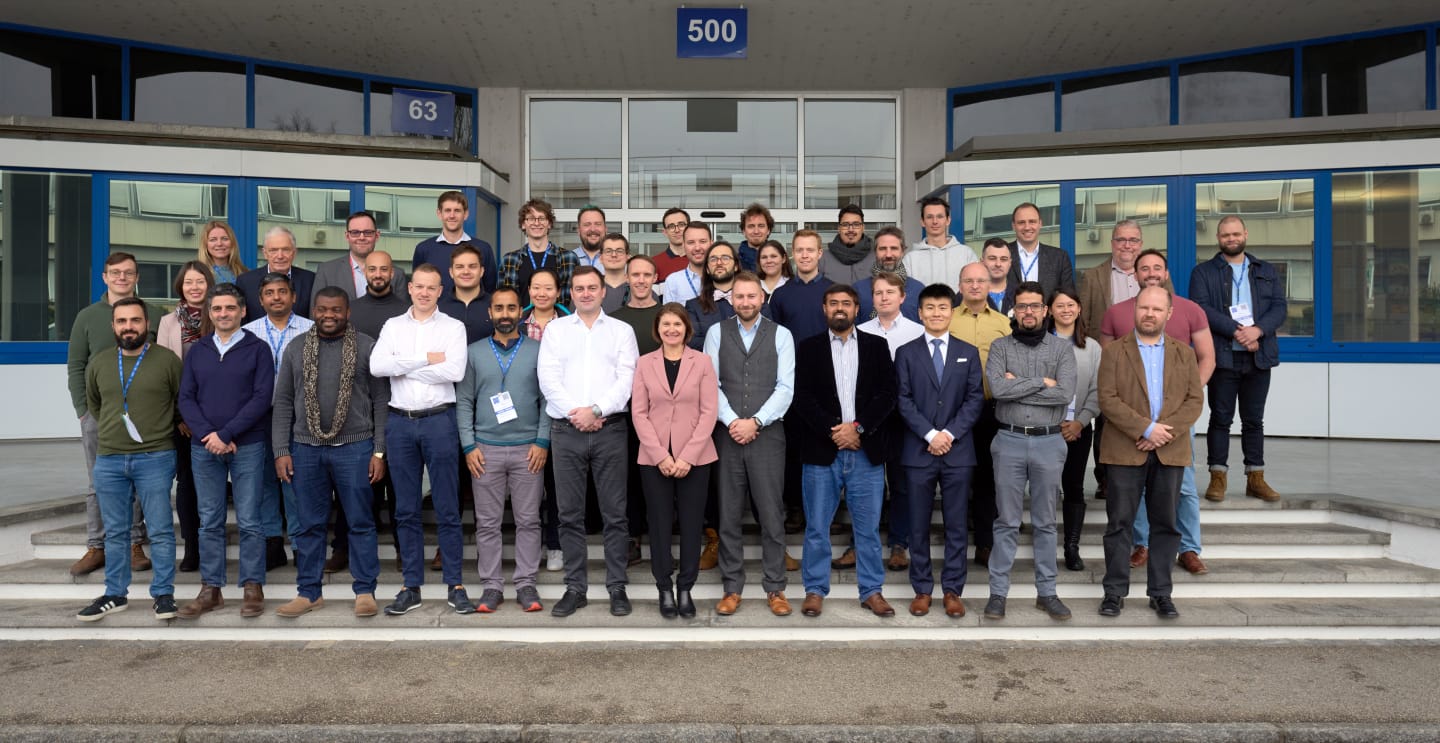Europe's €100 Billion "CERN for AI" Project: A Game-Changer for AI in Europe

Europe is poised to make a monumental leap in artificial intelligence (AI) with a proposed €100 billion "CERN for AI" project. This ambitious initiative, backed by European Commission President Ursula von der Leyen, aims to create a centralized hub for AI research and innovation, modeled after the successful European Organization for Nuclear Research (CERN). Here’s an in-depth look at the project, its rationale, funding, structure, objectives, and the support and criticism it has garnered.

Rationale for CERN for AI
Europe has been struggling to keep pace with the rapid advancements in AI technology. The continent's fragmented AI strategy has left it increasingly dependent on foreign technologies, which undermines its economic, cultural, and geopolitical sovereignty. The "CERN for AI" project aims to address these challenges by creating a centralized hub for AI research and innovation. This hub would not only boost Europe's competitiveness in AI but also ensure that AI advancements are aligned with European values and regulatory standards[1][4].
Funding and Structure
The proposed European Distributed Institute for AI in Science (EDIRAS) will require a substantial investment of €100 billion over five to seven years. This funding will support the creation of a state-of-the-art AI research facility equipped with:
- Massive high-performance computing power
- Sustainable cloud infrastructure
- High-quality data resources
The initiative is backed by prominent AI experts and organizations such as CLAIRE (Confederation of Laboratories for AI Research in Europe) and euRobotics. It aims to provide a centralized hub for AI research while also offering talent training programs to nurture the next generation of AI specialists[1][4][5].
Objectives and Goals
The primary objectives of the "CERN for AI" initiative include:
- Establishing a centralized research hub for cutting-edge AI development
- Ensuring public ownership of AI advancements
- Fostering innovation aligned with European values and regulatory standards
By creating this facility, Europe aims to enhance its competitiveness in AI, reduce dependence on foreign technologies, and maintain technological sovereignty. The project also seeks to make the benefits of AI research broadly accessible to industry and society, potentially generating significant economic impact and creating hundreds of thousands of jobs across the continent[1][4].
Support and Criticism
The proposal has garnered significant support from scientific advisors and policymakers who view it as crucial for maintaining Europe's AI competitiveness. For instance, the Group of Chief Scientific Advisors to the European Commission has recommended setting up a "CERN for AI" to help scientists develop AI tools to accelerate their research[4]. However, the project has also faced criticism:
- Scope and Budget Concerns: Critics argue that the project's scope may be too narrow and lacks a concrete budget. There are also concerns about the distributed nature of the proposed institute potentially diluting its impact[4].
- Implementation Delays: The most plausible path for piloting EDIRAS is as part of Horizon Europe, with the potential to scale it up from 2028. This delay has raised concerns about the timely implementation of the project[4].
The Impact on AI in Europe
The "CERN for AI" project could significantly boost Europe's AI capabilities. By creating a centralized hub for research and innovation, Europe can attract top talent, foster collaboration, and drive cutting-edge AI development. This initiative could also help Europe maintain its technological sovereignty and reduce dependence on foreign technologies[1][4][5].
The Future of AI in Europe
The "CERN for AI" project represents a bold step towards securing Europe’s future in AI. With substantial investment and support from key stakeholders, this initiative could position Europe as a global leader in AI research and innovation. The project's success will depend on effective implementation, collaboration, and a clear vision for the future of AI in Europe[1][4][5].
Technologies Focused on by the €100 Billion CERN for AI Investment
The €100 billion investment in the "CERN for AI" project aims to establish a cutting-edge AI research hub, focusing on several advanced technologies and infrastructure components. Here are the specific technologies and areas of focus:
1. High-Performance Computing (HPC) and Sustainable Cloud Infrastructure
- Massive High-Performance Computing Power: The project will invest heavily in high-performance computing capabilities to support complex AI research and development. This includes the use of supercomputers and advanced computational resources to handle large-scale AI models and simulations[3][8].
- Sustainable Cloud Infrastructure: A significant portion of the funding will go towards building a sustainable cloud infrastructure. This infrastructure will provide scalable and efficient computing resources, ensuring that AI research is both powerful and environmentally friendly[3].
2. High-Quality Data Resources
- Data Accessibility and Quality: The initiative will focus on improving the quality and accessibility of research data. This includes creating public-private partnerships to make private data available for research and developing specialized tools for managing and utilizing high-quality data[6][8].
- Open Data Initiatives: Efforts will be made to provide more "open data" recorded by various experiments, engaging researchers outside traditional domains to benefit from complex and high-statistics datasets[4].
3. AI Training Programs and Talent Development
- Talent Training Programs: The project will include comprehensive training programs to nurture the next generation of AI specialists. These programs will focus on equipping researchers with the skills needed to leverage advanced AI technologies effectively[3][8].
- Interdisciplinary Collaboration: Emphasis will be placed on fostering interdisciplinary efforts to ensure AI serves society holistically, incorporating insights from various scientific disciplines[6].
4. Specialized AI Tools for Scientific Research
- AI for Science: The project will prioritize the development of specialized AI tools tailored for scientific research. This includes AI-driven models and algorithms designed to accelerate discoveries in fields such as physics, healthcare, and environmental science[3][8].
- Machine Learning for Particle Physics: AI and machine learning techniques will be used to analyze complex data from particle physics experiments, such as those conducted at CERN. These techniques will help identify new particles and understand fundamental physical phenomena[4][7].
5. AI Safety and Ethical AI Development
- AI Safety Research: A portion of the investment will be dedicated to researching AI safety and developing frameworks to ensure ethical AI development. This includes pre-deployment safety reviews, auditing, and licensing to mitigate risks associated with AI technologies[1].
- Governance and Regulation: The project will also focus on establishing international governance structures to promote safe, secure, and peaceful AI technologies. This involves collaboration with governments, large technology companies, non-profits, and academia[1].
6. Broader Applications of AI
- AI for Industry and Public Administration: Beyond scientific research, the project aims to develop AI applications for various industries, including engineering, manufacturing, and public administration. This broader approach ensures that AI innovations benefit multiple sectors and enhance overall societal well-being[3].
Conclusion
In conclusion, the "CERN for AI" project is a transformative initiative that aims to revolutionize Europe’s AI capabilities. By fostering collaboration, attracting top talent, and driving cutting-edge research, Europe can secure its future in AI and maintain its technological sovereignty. The success of this project will depend on effective implementation and the support of key stakeholders.
The €100 billion CERN for AI project is a comprehensive initiative designed to position Europe as a global leader in AI research and innovation. By focusing on high-performance computing, sustainable infrastructure, high-quality data resources, talent development, specialized AI tools, and ethical AI practices, the project aims to address current challenges and unlock new opportunities in AI. This ambitious investment will not only boost Europe's competitiveness in AI but also ensure that AI advancements align with European values and contribute to the global good.
Sources:
Citations:
[1] https://garymarcus.substack.com/p/a-cern-for-ai-and-the-global-governance
[2] https://www.reuters.com/technology/european-commission-official-sees-100-bln-private-chip-investment-by-2030-2024-05-22/
[3] https://sciencebusiness.net/news/ai/eu-science-advisers-back-call-cern-ai-aid-research
[4] https://atlas.cern/Updates/Feature/Machine-Learning
[5] https://www.euractiv.com/section/digital/news/von-der-leyen-gives-nod-to-e100-billion-cern-for-ai-proposal/
[6] https://www.swisscore.org/idea-for-new-eu-institute-on-research-with-ai/
[7] https://home.cern/news/news/physics/how-can-ai-help-physicists-search-new-particles
[8] https://www.timeshighereducation.com/news/create-european-institute-ai-research-brussels-told
[1] https://aiinasia.com/europes-e100b-cern-for-ai-project-a-game-changer-for-ai-in-europe/
[2] https://sparks.cern/index.php/ai-cern
[3] https://garymarcus.substack.com/p/a-cern-for-ai-and-the-global-governance
[4] https://sciencebusiness.net/news/ai/eu-science-advisers-back-call-cern-ai-aid-research
[5] https://claire-ai.org/cern-for-ai/
[6] https://home.cern/news/news/knowledge-sharing/cerns-edge-ai-data-analysis-techniques-used-detect-marine-plastic
[7] https://www.linkedin.com/pulse/europes-100b-cern-ai-project-leonard-scheidel-griwe





